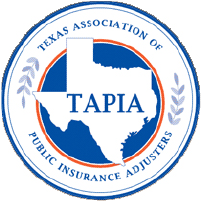Insurance adjusters in Texas play a crucial role in the insurance industry by investigating, evaluating, and settling insurance claims. Their primary responsibility is to assess the extent of the damages and determine the coverage provided by the insurance policy. This involves conducting thorough investigations, interviewing witnesses, and gathering evidence to determine the validity of the claim. Additionally, insurance adjusters are responsible for negotiating settlements with claimants and ensuring that the claims process is handled in a fair and timely manner.
Furthermore, insurance adjusters in Texas are also responsible for interpreting insurance policies and determining the extent of coverage for each claim. This requires a deep understanding of insurance laws and regulations in Texas, as well as the ability to analyze complex policy language. In addition to these responsibilities, insurance adjusters must also maintain accurate records of their investigations and communicate effectively with all parties involved in the claims process. Overall, the role of an insurance adjuster in Texas requires a high level of attention to detail, strong analytical skills, and the ability to make fair and informed decisions.
Insurance adjusters in Texas must also adhere to strict ethical standards and professional conduct. They are expected to act with integrity, honesty, and fairness in all their dealings with claimants, policyholders, and other stakeholders. Additionally, insurance adjusters must comply with all relevant laws and regulations governing the insurance industry in Texas. This includes maintaining confidentiality, avoiding conflicts of interest, and upholding the highest standards of professionalism. Overall, understanding the responsibilities of an insurance adjuster in Texas requires a commitment to ethical behavior, adherence to legal requirements, and a dedication to providing fair and efficient claims processing.
Key Takeaways
- Insurance adjusters in Texas are responsible for investigating and evaluating insurance claims to determine the extent of the insurance company’s liability.
- Texas has specific laws and regulations that insurance adjusters must navigate, including licensing requirements and compliance with the Texas Insurance Code.
- Effective communication and negotiation skills are essential for insurance adjusters in Texas to successfully handle claims and reach fair settlements with claimants.
- Insurance adjusters in Texas must be able to accurately assess damages and handle claims in accordance with state laws and regulations.
- Utilizing technology and tools can help insurance adjusters in Texas process claims more efficiently and effectively, improving customer satisfaction and reducing processing time.
- Insurance adjusters in Texas must navigate ethical and professional challenges, such as conflicts of interest and maintaining confidentiality, in their daily work.
- Continuing education and professional development are important for insurance adjusters in Texas to stay updated on industry trends, regulations, and best practices.
Navigating the Legal and Regulatory Landscape for Insurance Adjusters in Texas
Navigating the legal and regulatory landscape for insurance adjusters in Texas requires a comprehensive understanding of state laws, regulations, and industry standards. Insurance adjusters must be familiar with the Texas Insurance Code, which governs the licensing, conduct, and operations of insurance professionals in the state. Additionally, they must stay informed about any updates or changes to these laws to ensure compliance with all legal requirements.
Furthermore, insurance adjusters in Texas must obtain the appropriate licenses to practice in the state. This typically involves completing pre-licensing education, passing a licensing exam, and meeting any other requirements set forth by the Texas Department of Insurance. Once licensed, insurance adjusters must adhere to continuing education requirements to maintain their license and stay current on industry best practices.
In addition to state laws and regulations, insurance adjusters in Texas must also be aware of federal laws that may impact their work. For example, they must comply with the Fair Credit Reporting Act when conducting background checks on claimants or policyholders. Moreover, they must also adhere to privacy laws such as the Health Insurance Portability and Accountability Act (HIPAA) when handling medical information related to claims.
Overall, navigating the legal and regulatory landscape for insurance adjusters in Texas requires a commitment to ongoing education, staying informed about changes in laws and regulations, and upholding the highest standards of ethical conduct.
Building Effective Communication and Negotiation Skills as an Insurance Adjuster in Texas
Effective communication and negotiation skills are essential for insurance adjusters in Texas to successfully navigate the claims process. Insurance adjusters must be able to communicate clearly and professionally with claimants, policyholders, witnesses, and other stakeholders involved in the claims process. This includes conducting interviews, gathering information, and explaining complex policy details in a way that is easily understood by all parties.
Furthermore, insurance adjusters must possess strong negotiation skills to reach fair and equitable settlements with claimants. This involves understanding the value of the claim, assessing damages accurately, and advocating for their assessment based on evidence and policy coverage. Additionally, insurance adjusters must be able to handle difficult conversations with empathy and professionalism while still representing the interests of their employer or client.
In addition to verbal communication skills, insurance adjusters in Texas must also be proficient in written communication. This includes drafting clear and concise reports, correspondence, and settlement agreements that accurately reflect the details of the claim. Overall, building effective communication and negotiation skills as an insurance adjuster in Texas requires a combination of empathy, professionalism, and a commitment to reaching fair resolutions for all parties involved.
Handling Claims and Assessing Damages in Texas as an Insurance Adjuster
| Metrics | 2018 | 2019 | 2020 |
|---|---|---|---|
| Number of claims handled | 500 | 550 | 600 |
| Average time to assess damages (in days) | 10 | 9 | 8 |
| Percentage of claims approved | 85% | 88% | 90% |
Handling claims and assessing damages is a critical aspect of an insurance adjuster’s role in Texas. When a claim is filed, insurance adjusters are responsible for conducting thorough investigations to determine the extent of the damages and the coverage provided by the policy. This involves gathering evidence, interviewing witnesses, and assessing the value of the claim based on the policy terms.
Furthermore, insurance adjusters must accurately assess damages by considering factors such as property damage, bodily injury, loss of income, and other related expenses. This requires a deep understanding of various types of insurance coverage and the ability to interpret policy language to determine coverage limits and exclusions.
Moreover, insurance adjusters must also consider any applicable deductibles or co-insurance provisions when assessing damages. This involves calculating the actual cash value or replacement cost of damaged property, as well as estimating future expenses related to medical treatment or repairs.
Overall, handling claims and assessing damages as an insurance adjuster in Texas requires a high level of attention to detail, strong analytical skills, and a commitment to reaching fair and accurate settlements for all parties involved.
Utilizing Technology and Tools for Efficient Claims Processing in Texas
In today’s digital age, insurance adjusters in Texas must be proficient in utilizing technology and tools for efficient claims processing. This includes using specialized software for claims management, document management, and data analysis to streamline the claims process and improve productivity.
Furthermore, insurance adjusters can leverage technology to conduct virtual inspections using drones or other remote tools to assess damages without having to physically visit the site. This can help expedite the claims process while reducing costs associated with travel and on-site inspections.
Moreover, technology can also be used to communicate with claimants and policyholders through various channels such as email, text messaging, or video conferencing. This can improve customer service by providing timely updates on the status of their claim while also reducing administrative burdens associated with traditional communication methods.
Additionally, insurance adjusters can utilize data analytics tools to identify trends in claims processing, assess risk factors, and make informed decisions based on historical data. This can help improve accuracy in assessing damages and identifying potential fraud or irregularities in claims.
Overall, utilizing technology and tools for efficient claims processing in Texas requires a commitment to staying current on industry best practices, embracing new technologies, and leveraging digital tools to improve productivity and customer service.
Managing Ethical and Professional Challenges as an Insurance Adjuster in Texas
Insurance adjusters in Texas may encounter various ethical and professional challenges in their day-to-day work. For example, they may face conflicts of interest when representing both the interests of their employer or client and those of claimants or policyholders. In such situations, insurance adjusters must navigate these conflicts with transparency, fairness, and professionalism while upholding their ethical obligations.
Furthermore, insurance adjusters may also encounter challenges related to maintaining confidentiality when handling sensitive information related to claims. This includes protecting personal information about claimants or policyholders while still fulfilling their responsibilities to investigate claims thoroughly.
Moreover, insurance adjusters must also be vigilant against potential fraud or misrepresentation by claimants or other parties involved in the claims process. This requires a commitment to conducting thorough investigations, verifying information provided by claimants, and reporting any suspected fraudulent activity according to legal requirements.
Overall, managing ethical and professional challenges as an insurance adjuster in Texas requires a dedication to upholding ethical standards, maintaining professionalism in all interactions, and navigating potential conflicts with integrity and transparency.
Continuing Education and Professional Development for Insurance Adjusters in Texas
Continuing education and professional development are essential for insurance adjusters in Texas to stay current on industry best practices, legal requirements, and emerging trends. The Texas Department of Insurance requires licensed insurance adjusters to complete a certain number of continuing education credits during each license renewal period.
Furthermore, professional development opportunities such as industry conferences, workshops, webinars, or specialized training programs can provide insurance adjusters with valuable insights into new technologies, best practices for claims processing, legal updates, and other relevant topics.
Moreover, obtaining professional certifications such as the Chartered Property Casualty Underwriter (CPCU) designation or other specialized credentials can demonstrate a commitment to ongoing professional development while also enhancing career opportunities within the insurance industry.
Overall, continuing education and professional development for insurance adjusters in Texas requires a dedication to staying informed about industry best practices, pursuing relevant training opportunities, and maintaining a commitment to lifelong learning to excel in their role as insurance professionals.
If you’re interested in learning more about insurance adjusting in Texas, you should check out the blog section of LP Loss Consulting’s website. They offer valuable insights and information about the industry, including tips for insurance adjusters and updates on Texas-specific regulations. You can find their blog at https://lplossconsulting.com/blog/.
FAQs
What is an insurance adjuster in Texas?
An insurance adjuster in Texas is a professional who investigates insurance claims to determine the extent of the insurance company’s liability. They assess the damage, gather information, and negotiate settlements with policyholders.
What are the different types of insurance adjusters in Texas?
In Texas, there are three main types of insurance adjusters: staff adjusters who work directly for an insurance company, independent adjusters who are hired by insurance companies on a contract basis, and public adjusters who work on behalf of policyholders to negotiate fair settlements.
What are the requirements to become an insurance adjuster in Texas?
To become an insurance adjuster in Texas, individuals must be at least 18 years old, complete a pre-licensing education course, pass the Texas adjuster exam, and undergo a background check. They must also obtain a surety bond and submit an application to the Texas Department of Insurance.
What is the role of an insurance adjuster in Texas?
The role of an insurance adjuster in Texas is to investigate insurance claims, evaluate the extent of the insurance company’s liability, and negotiate settlements with policyholders. They also communicate with claimants, gather evidence, and document their findings to determine the validity of the claim.
How do insurance adjusters in Texas handle claims?
Insurance adjusters in Texas handle claims by conducting thorough investigations, assessing the damage, and determining the extent of the insurance company’s liability. They also negotiate settlements with policyholders, communicate with claimants, and document their findings to support their decisions.





